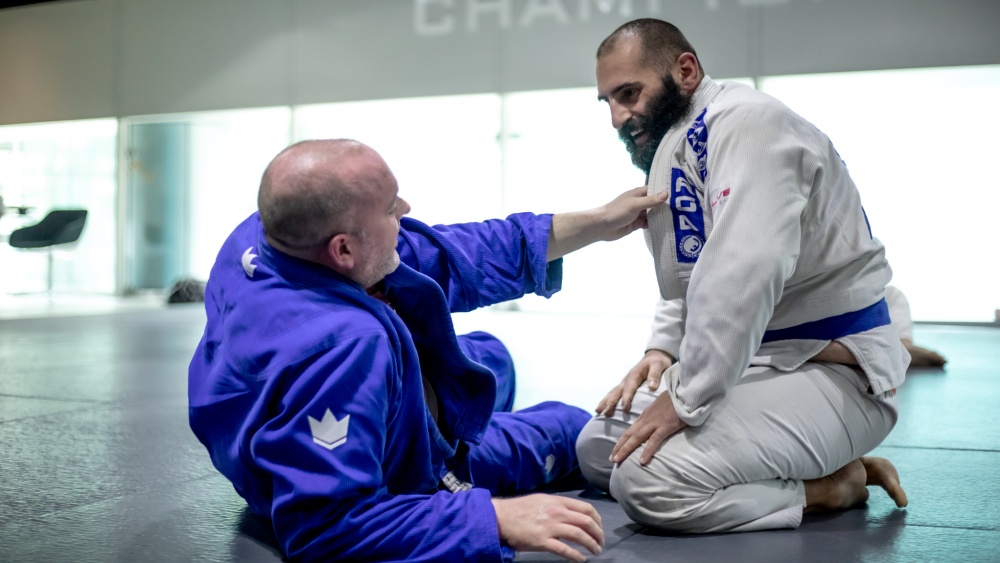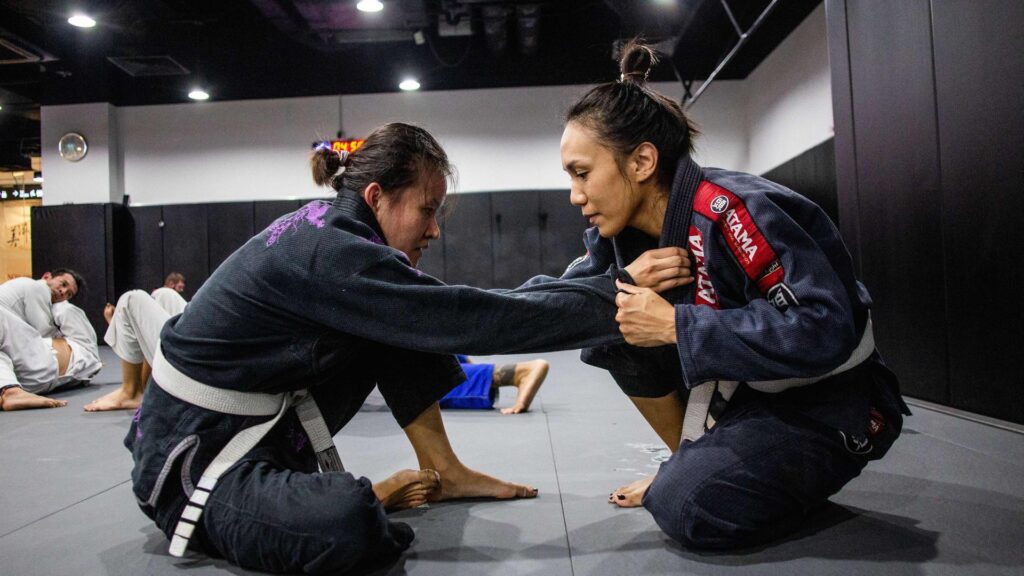Guest post by Evolve MMA, Asia’s premier championship brand for martial arts. It has the most number of World Champions on the planet. Named as the #1 ranked martial arts organization in Asia by CNN, Yahoo! Sports, FOX Sports, Evolve MMA is the top rated Martial Arts gym in Singapore.
Martial arts training is a group activity that gives you many opportunities to make new friends and expand your social network. Your training partners also help to keep you motivated to train. They are there to encourage you when you have difficulty learning a new technique, and their growth in the gym will push you to improve.
They also serve as a way to measure your growth in the gym. For example, if one of your training partners who started training about the same time as you starts moving through the ranks faster than you are, you should take your training more seriously to keep up.
Learning a martial art is a life-long journey, and having training partners who are going on the same ride makes everything a lot easier.
Reasons To Encourage Your Training Partners
Being a good training partner in the gym goes beyond looking for ways your training mates can help you to accomplish your goals. You should also look for ways to encourage your training partners and help them get past obstacles in their way.
Some of the benefits of being a good training partner who motivates others in the gym include:
1) It Improves Your Understanding Of Techniques
Talk to any martial artist who has ever trained others and they’ll tell you how much explaining techniques to others have improved their technique. Knowing how to execute a move is one thing while breaking down the technique for someone else is a different story.
Knowing how to execute a technique typically means your muscle memory has mastered it. You often perform these techniques without doing much thinking. However, explaining a technique to someone else requires you to remember all the minor details that make a move work. It could even lead to you refreshing your knowledge of the technique so you can explain it in clearer terms.
Regularly reviewing the fine details of technique will sharpen your abilities as a martial artist. You start closing up all the holes in your technique as you become more aware of the little things that make the technique effective.
2) It Gives You Better Training Partners
The more you help out your training partners in the gym, the more likely they are to improve as martial artists. That means you get more quality competition during your sparring matches. Remember the old saying, “iron sharpens iron?” That philosophy applies to martial artists as well. The more skilled your sparring partners are, the faster you will grow as a martial artist.
Sure, you’ll be much more dominant when you spar with less experienced students, but that only feeds your ego. Novices don’t have the skills or understanding to exploit the weaknesses in your game, but experienced martial artists do. Having training partners that can point out the things you’re doing wrong allows you to fix your techniques, making you a better fighter.
3) It Gives You Valuable Experience As An Instructor And Opens Doors
Martial arts dojos don’t necessarily expect all their students to take time to explain techniques to other students, but they will notice you encouraging and teaching your sparring partners. You get to figure out the best way to explain martial arts concepts to people, giving you helpful experience if you decide to become an instructor. Your instructors might even offer you a minor role at the gym when they notice how committed you are to helping your training partners grow.
4) Makes You A Better Training Partner
Some training partners are better than others, and there are many rewards to being a helpful person in the gym. Other students are more likely to take time out of their training sessions to help you work on things you’re struggling with.
Likewise, other students are more likely to give you words of encouragement when you find yourself struggling on the mat. Being a good training partner starts a chain reaction that benefits you in the long run.
5) Gives You A Sense Of Accomplishment
Nothing feels better than helping a struggling training partner to get over the hump. Seeing them master the techniques you explained to them will give you a sense of accomplishment, especially if they also become helpful to other gym students.
6) Makes New Students Feel More Comfortable
Many people find going to their first martial arts class a bit intimidating. In their minds, they’re going to a place where everyone knows how to fight, and they’re worried about not being able to keep up with their training. Just reflect on the way you felt when you attended your first class.
Going out of your way to encourage new students helps them to feel comfortable in a new environment. We’re all martial arts ambassadors, and talking to new students and encouraging them goes a long way. It can be the difference between a new student only attending one class and calling it quits or a new student becoming a life-long martial artist.
Your words of encouragement will let them know that martial arts dojos are ego-free zones. It reminds them that everyone at the gym started off as a white belt and understands the emotions they’re dealing with. It might not seem like much to you, but that new student will remember how kind you were to them for a long time.
7) Makes The Atmosphere More Fun
Martial art dojos are typically positive environments, but you still need to play your part. The atmosphere should never be overly competitive since that leads to students trying to outdo each other instead of helping each other out.
Take time out of your day to put positive vibes into your gym. Simple things like telling a training partner how well they performed when you spar go a long way. Always aim to be a positive influence on everyone around you in the gym. You’ll make more friends because of it, and you’ll have lots of fun every time you train.
The post The Importance Of Encouraging Your Training Mates In The Gym appeared first on Bjj Eastern Europe.


